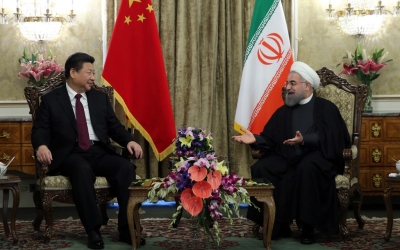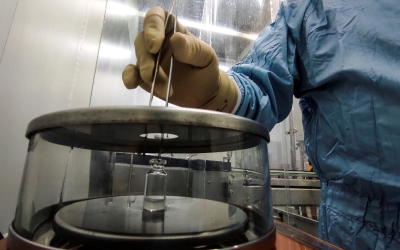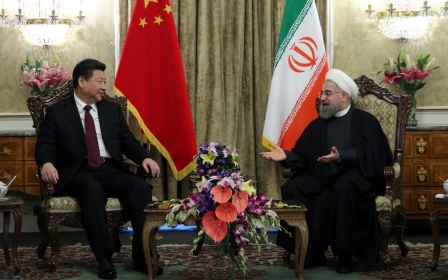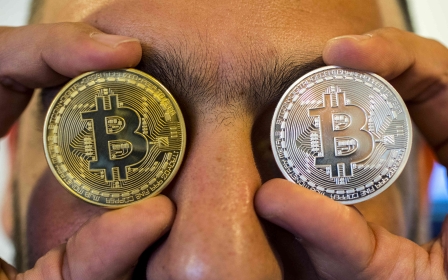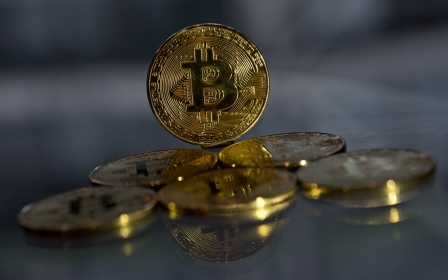Iran: Is Chinese Bitcoin mining behind country's massive power blackouts?
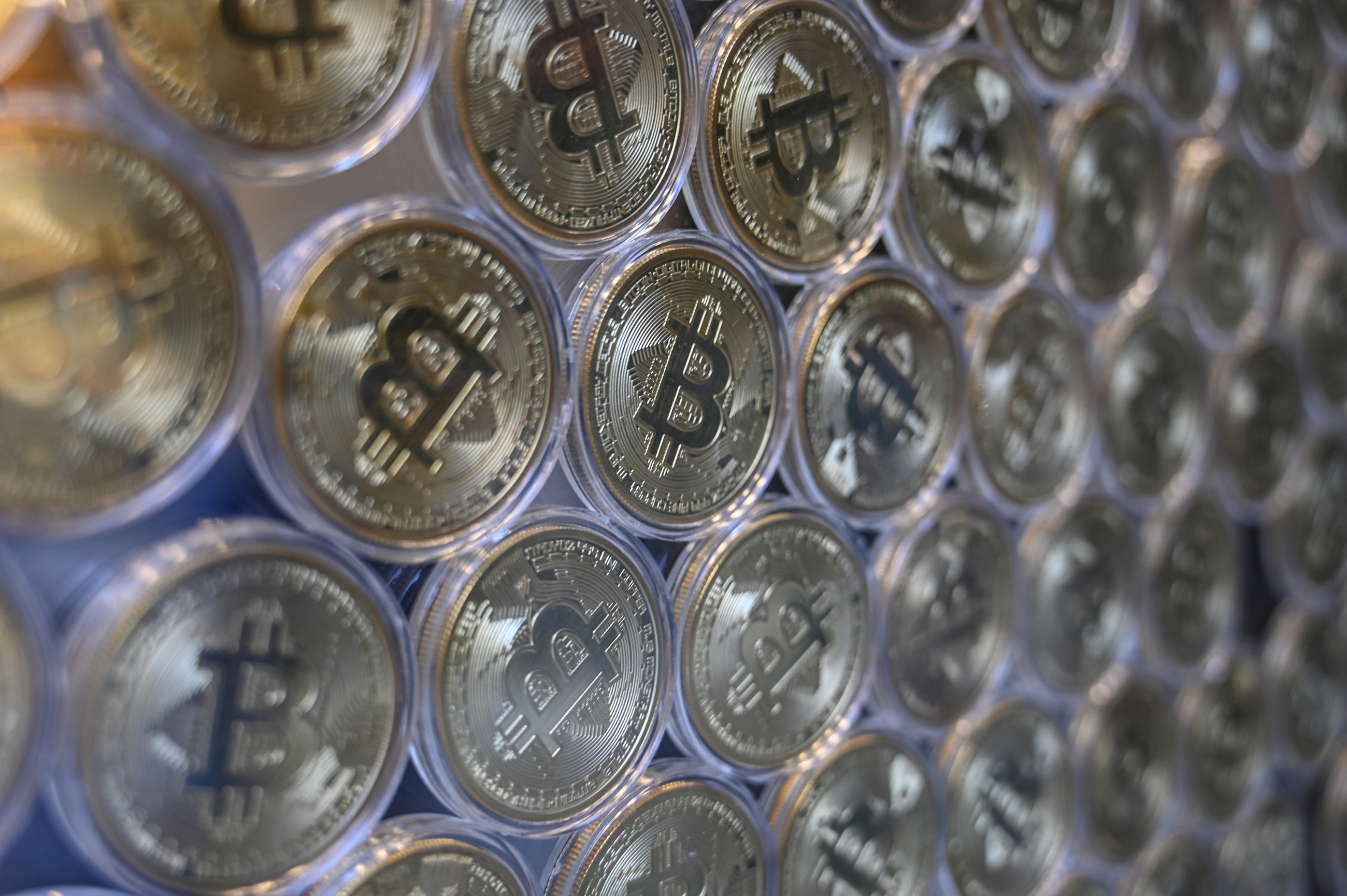
Controversy has erupted in Iran after senior officials blamed Chinese mining of cryptocurrencies for recurring blackouts in the country, as well as rocketing pollution.
Following major power outages in Tehran in early January, media reports and officials began to point the finger at a large Chinese mining farm near the city of Rafsanjan.
The farm, which employs 54,000 miners, is the largest authorised site for Bitcoin mining in the country, reportedly using 175 megawatt hours of electricity.
The farm, which operates under the name of the company Iran-China Investment Development Group, has rejected the allegations, blaming inefficiency in the Iranian electricity industry for the blackouts.
However, following a public outcry, Fassihi Harandi, the governor of Rafsanjan, announced that the farm had voluntarily stopped its activities.
"The officials of this [Bitcoin mining farm] told [us] that the purpose of stopping the activity of the unit is to provide electricity to the people in residential areas and prevent [more] blackouts," he said.
It was then declared that all the Bitcoin mining farms in the country had stopped their activity for two weeks.
The controversy has not just raised questions about the viability of mining cryptocurrencies in Iran, but also highlighted significant rifts within Iran's political establishment over Iran's relationship with China, with some pro-China figures accusing pro-US figures of attempting to smear Beijing over the affair.
A politicised problem?
Hossein Kanani-Moghaddam, a conservative analyst, told Middle East Eye that he believed that the furore stemmed from attempts to marginalise Chinese influence in Iran.
Last year, it was reported that the Iranian government had approved a draft 25-year deal with China on economic and political cooperation.
Critics argued Tehran had agreed to a "colonial" deal that would allow China to plunder the country's natural resources and oil reserves.
"Following the leakage of the report of Iran's 25-year agreement with China to the media, a negative propaganda was launched against Beijing in Iran, with some interviews against it," said Kanani-Moghaddam. "I think people close to the West are behind this propaganda."
Reports have emerged about another Chinese mining farm operating in the Aras free zone in the northwest of Iran, something later confirmed by Amir Nazemi, the deputy to Iran's communication minister.
However, electricity officials in the Aras free zone have claimed that no Chinese mining farm is operating there.
This comes despite comments from Mohammad Reza Sharafi, the head of the country's Cryptocurrency Farms Association, claiming 90 percent of the people active in mining cryptocurrencies are working in free and economic special zones.
In reply to a question about the countries involved in mining farms in Iran, Sepehr Mohammadi, the chairman of the board of the Blockchain Association of Iran, told MEE that: "We have had Chinese and Indian mining farms in Iran."
Mentioning a study conducted about two years ago, Sharafi told MEE that there were 500,000 mining machines in Iran at the time.
'Anti-China atmosphere'
Ali Shariati, a senior member of Iran's Chamber of Commerce and a reformist figure, told MEE: "There is a current inside Iran which seeks to create an anti-China atmosphere in Iran, with the sole aim of settling [internal] disputes."
He said the issue of China in Tehran had turned into a partisan matter while the issue was primarily diplomatic and economic.
'The volume of electricity consumed by miners in Iran is not high. All this ballyhoo is just a kind of hoax'
- Sepehr Mohammadi, chairman of the Blockchain Association of Iran
Others have played down the link to China. Mustafa Rajabi Mashhadi, the spokesman for Iran's national electricity grid, said the main problem stemmed from unauthorised cryptocurrency mining.
On 8 January, he said: "More than 300 megawatts of unauthorised electricity is consumed by cryptocurrency miners.
"The increase in the price of Bitcoin, which was once $8,000 and now has reached more than $30,000, has increased the number of miners."
Mining activists' dismay over attacks
Some of the authorised miners in Iran have expressed their concern at the atmosphere being created against them as the result of the blackouts.
"Unfortunately, whatever happens, the officials blame it on miners while all these things are the consequence of their own mismanagement," said Mohammadi.
"The volume of electricity consumed by miners in Iran is not high. All this ballyhoo is just a kind of hoax."
Sharafi said that some in the media wanted "to make the unreal issues real by waging propaganda, and want to deprive the country of the opportunity of mining cryptocurrencies".
"Four percent of the total mining of cryptocurrencies in the world is done in Iran.
"It is estimated that 12,000 megawatts is spent every hour by Bitcoin mining. If we consider a five percent share for Iran, we can say that approximately 600 megawatts of electricity is consumed every hour, for which the Ministry of Energy has issued a permission for consuming 310 megawatts."
Sharafi warned that such negative sentiments may lead Iran to lose the chance it has for making profit in the industry.
Who is guilty?
There is still a debate in Iran as to who is primarily responsible for the blackouts.
According to Abuzar Salehi, director general of international affairs for Iran's electricity industry, "one of the factors that has increased electricity consumption is the unauthorised cryptocurrency mining, and so far we have identified about 1,600 unauthorised cryptocurrencies.
"Their mining devices were collected and electricity consumption was taken from them."
Later, the Ministry of Energy urged people to be given a reward in return for locating unauthorised miners.
As a result, 45,000 unauthorised miners have been identified in the largest nationwide programme to combat unauthorised diversions.
"Unfortunately, due to sanctions and the consequent recession, many industrial and manufacturing parks, which receive cheaper electricity from the government, have turned to illegal virtual currency mining," said Sahriati, calling on the state to clarify its position on the unauthorised miners.
There have also been questions around government and state-run organisations using unauthorised mining farms.
In 2019, Fateme Zolqadr, a member of Iran's parliament, revealed that two studios belonging to state TV had been involved in cryptocurrency mining.
In response to the accusations, Mahmoud Vaezi, chief of staff to Iran President Hassan Rouhani, denied the reports, saying the government had no mining farms. However, he made no reference to state TV channels.
Middle East Eye propose une couverture et une analyse indépendantes et incomparables du Moyen-Orient, de l’Afrique du Nord et d’autres régions du monde. Pour en savoir plus sur la reprise de ce contenu et les frais qui s’appliquent, veuillez remplir ce formulaire [en anglais]. Pour en savoir plus sur MEE, cliquez ici [en anglais].


